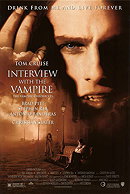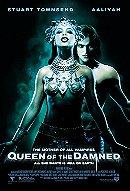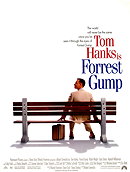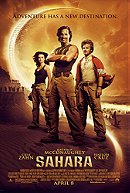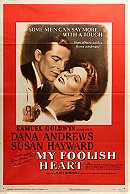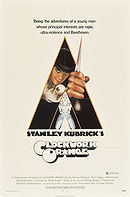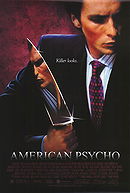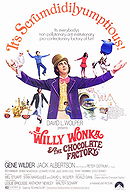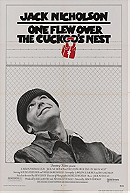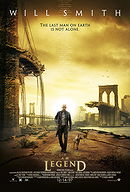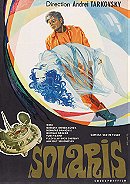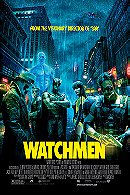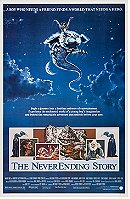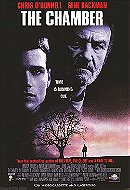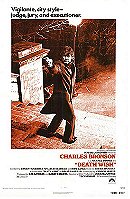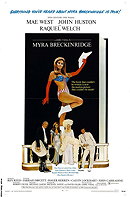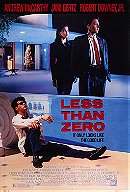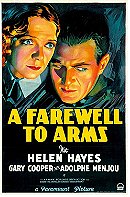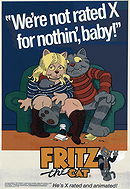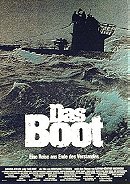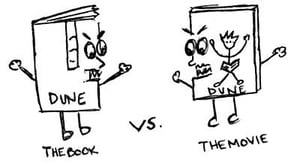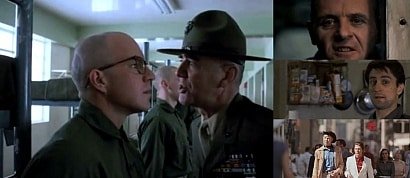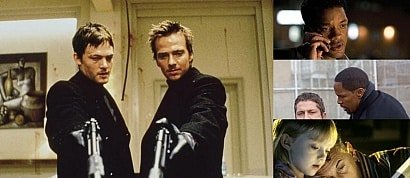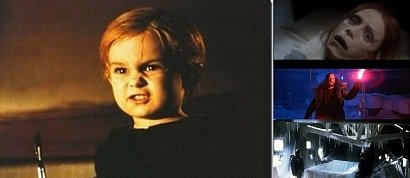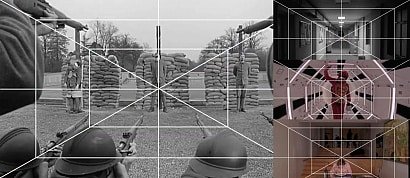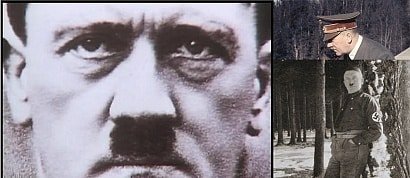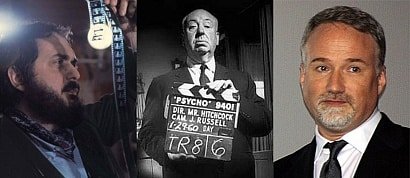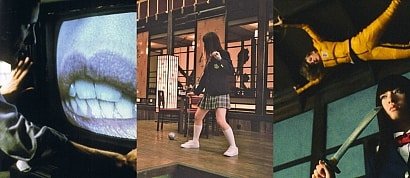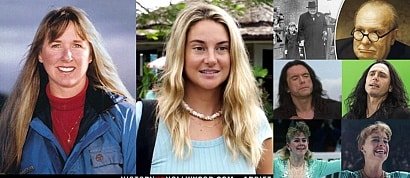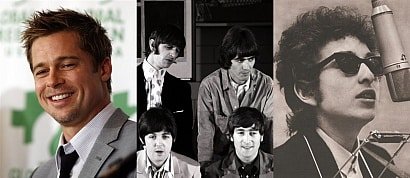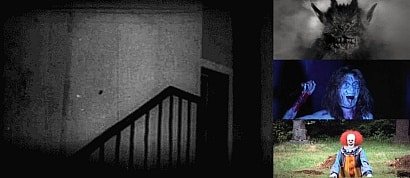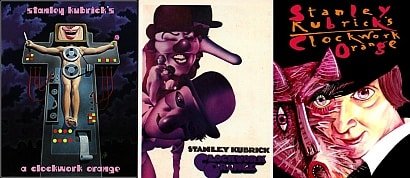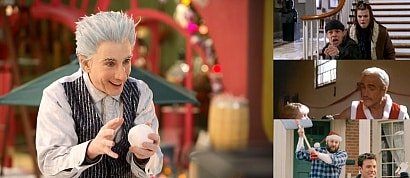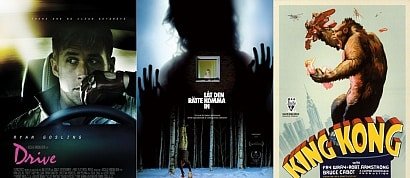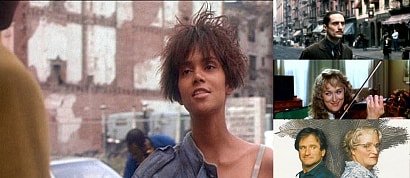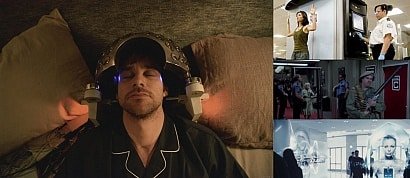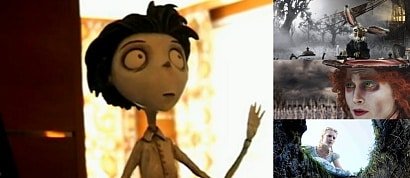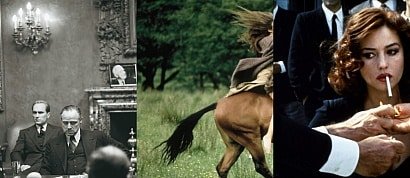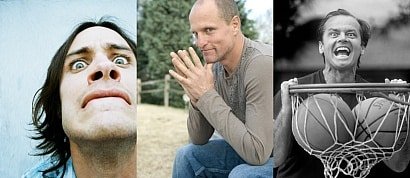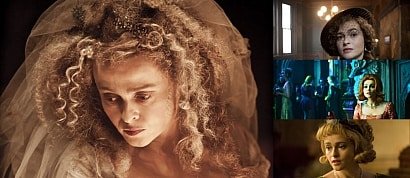Authors Hate the Movie Versions of Their Book
Sort by:
Showing 22 items
Decade:
Rating:
List Type:
Mary Poppins (1964)

Disney’s Mary Poppins might be a cherished childhood memory for a lot of us, but for author P. L. Travers, it was a complete slap in the face. Despite having script approval, Travers’ edits were largely disregarded. Travers loathed the movie’s animated sequences and was perturbed that Mary Poppins’ strict side was downplayed. After some heated meetings, Travers reluctantly approved. She would have been shunned from the star-studded premiere had she not shamed a Disney exec into an invite. The 65-year-old Travers spent most of the movie crying and ultimately refused to let Disney touch the rest of the series.

The Shining (1980)

Stephen King probably made movie buffs cringe when he said he hated what Stanley Kubrick did to The Shining. “I’d admired Kubrick for a long time and had great expectations for the project, but I was deeply disappointed in the end result. … Kubrick just couldn’t grasp the sheer inhuman evil of The Overlook Hotel. So he looked, instead, for evil in the characters and made the film into a domestic tragedy with only vaguely supernatural overtones. That was the basic flaw: because he couldn’t believe, he couldn’t make the film believable to others.” He was also unhappy with Jack Nicholson’s performance – King wanted it to be clear that Jack Torrance wasn’t crazy until he got to the hotel and felt that Nicholson made the character crazy from the start. With director Mick Garris, King ended up working on another version of The Shining that aired on ABC in 1997.

SFG¿mystic's rating:



After casting was completed for the movie version of Anne Rice’s Interview with the Vampire, she said Tom Cruise was “no more my vampire Lestat than Edward G. Robinson is Rhett Butler.” The casting was “so bizarre,” she said, “it’s almost impossible to imagine how it’s going to work.” When she saw the movie, however, she actually loved Cruise’s portrayal and told him what an impressive job he had done. She still hasn’t come around to liking Queen of the Damned, though, telling her Facebook fans to avoid seeing the film that “mutilated” her books.

Queen of the Damned (2002)

Anne Rice said in an interview about the movie "Let’s forget the film. That’s the best thing to do there: simply forget it. I haven’t seen it since it came out. I don’t count it as being based on my work. And I try to blot it out of my mind.” She considers this to be a terrible disappointment for her and for many of the readers."
Forrest Gump (1994)

Unhappy with the way Hollywood treated Forrest Gump by omitting plot points and sanitizing some of the language and sex, author Winston Groom started its the sequel to his novel Forrest Gump (1986) with the lines, “Don’t never let nobody make a movie of your life’s story,” and “Whether they get it right or wrong, it don’t matter.” You can’t blame Groom for being mad: he sued for the 3% net profits his contract promised him, which he hadn’t received because producers claimed that by the time they took out production costs and advertising and promotional costs, the movie didn’t turn a profit. To add insult to injury, Groom wasn’t mentioned in any of the six Academy Award acceptance speeches given by various cast and crew members of Forrest Gump.

SFG¿mystic's rating:


Sahara (2005)

Clive Cussler’s Dirk Pitt tales have a cult following. Dirk Pitt movies don’t, especially 2005’s Sahara starring Matthew McConaughey and Penelope Cruz. In fact, it was a certified flop: the $145 million production made just $68 million at the box office. Cussler said it was because the producer failed to give him total script control as agreed upon and sued for $38 million. He lost. In fact, Cussler was ordered to pay $13.9 million for legal fees incurred by the Sahara production company. Though that order was overturned in 2010, it’s safe to say that Cussler probably won’t be pursuing that relationship again. By the way, the other Dirk Pitt movie adaptation, Raise the Titanic!, was also an epic stinker and was even nominated for the first ever Golden Raspberry Award (in multiple categories). Despite having the star presence of Oscar winners Jason Robards and Alec Guinness, the movie made back less than 20 percent of its $40 million budget.
SFG¿mystic's rating:


My Foolish Heart (1949)

There’s a reason no one has ever seen a big-screen version of Catcher in the Rye or Franny and Zooey. In the late ‘40s, J. D. Salinger consented to have his short story Uncle Wiggly in Connecticut made into a movie retitled My Foolish Heart. He was so mortified by the swooning love story that he swore his works would never be butchered again.
A Clockwork Orange (1971)

Not only did Anthony Burgess dislike the movie based on his novella A Clockwork Orange, he later regretted writing any of it in the first place. “The book I am best known for, or only known for, is a novel I am prepared to repudiate: written a quarter of a century ago, a jeu d’esprit knocked off for money in three weeks, it became known as the raw material for a film which seemed to glorify sex and violence. The film made it easy for readers of the book to misunderstand what it was about, and the misunderstanding will pursue me till I die. I should not have written the book because of this danger of misinterpretation.”

SFG¿mystic's rating:


American Psycho (2000)

Bret Easton Ellis doesn’t think any of the film adaptations of his books are that great (save for maybe The Rules of Attraction), but he dislikes some more than others. Though he worked on 2009’s The Informers, he says, “That movie doesn’t work for a lot reasons but I don’t think any of those reasons are my fault.”
And Ellis believes American Psycho never should have happened: “American Psycho was a book I didn’t think needed to be turned into a movie. I think the problem with American Psycho was that it was conceived as a novel, as a literary work with a very unreliable narrator at the center of it and the medium of film demands answers. It demands answers. You can be as ambiguous as you want with a movie, but it doesn’t matter — we’re still looking at it. It’s still being answered for us visually. I don’t think American Psycho is particularly more interesting if you knew that he did it or think that it all happens in his head. I think the answer to that question makes the book infinitely less interesting.”

SFG¿mystic's rating:



Ever wonder why Charlie and the Great Glass Elevator hasn’t followed in the silver screen footsteps of its predecessor, Charlie and the Chocolate Factory? Because Roald Dahl felt the movie version of his book was “crummy,” found Gene Wilder’s Willy Wonka to be “pretentious” and “bouncy,” and thought the director had “no talent or flair.” He vowed that film producers would never get their hands on the sequel to similarly ruin it, at least not in his lifetime.


Despite the fact that One Flew Over the Cuckoo’s Nest swept the Academy Awards – it won Best Picture, Best Director, Best Actor, Best Actress and Best Screenplay – author Ken Kesey was not impressed. He was originally slated to help with the production, but left two weeks into the process. Though he claimed for a long time that he didn’t even watch it and was especially upset that they didn’t keep the viewpoint of Chief Bromden, his wife later said that he was glad the movie was made.

SFG¿mystic's rating:


I Am Legend (2007)

Richard Matheson has been annoyed with the adaptations of his book I Am Legend since 1964. The first one, The Last Man on Earth, starred Vincent Price. “I was disappointed in The Last Man on Earth, even though they more or less followed my story. I think Vincent Price, whom I love in every one of his pictures that I wrote, was miscast. I also felt the direction was kind of poor.” Another version, The Omega Man, starred Charlton Heston. “The Omega Man was so removed from my book that it didn’t even bother me,” Matheson said. And when I Am Legend starring Will Smith was announced, the author commented, “I don’t know why Hollywood is fascinated by my book when they never care to film it as I wrote it.” The most recent adaptation, by the way, completely changed Matheson’s ending because it didn’t test well with audiences.

SFG¿mystic's rating:



Stanisław Lem observed that neither feature movie much depicts the extraordinary physical and psychological “alienness” of the Solaris ocean: “I only wanted to create a vision of a human encounter with something that certainly exists, in a mighty manner perhaps, but cannot be reduced to human concepts, ideas or images”

Lem spent six months working with Tarkovsky in Moscow, but their collaboration ended in a bitter conflict over the changes and additions to the original story. After seeing edited parts of the 1972 film, Lem said of Tarkovsky: "Instead of focusing on deeper moral questions related to frontiers of human knowledge, he made a drama-type 'Crime and Punishment' in space, by making up unnecessary characters of parents and relatives, then adding a hut on an island." "Tarkovsky was a genius, but he was moving in the opposite direction from my book", also said Lem. Upon his doctor's advice Lem did not want to see the 2002 remake by director Steven Soderbergh, starring George Clooney and Natascha McElhone.

Solaris (2002)
Watchmen (2009)

Nobody quite believes Alan Moore when he says he doesn't care about the movies made of his work. He has had his name removed from anything to do with the Watchmen movie. He's also demanded that his share of any profits from it go to Dave Gibbons, the original artist of the comic book (who has co-operated with the movie production).

“I find film in its modern form to be quite bullying. It spoon-feeds us, which has the effect of watering down our collective cultural imagination. It is as if we are freshly hatched birds looking up with our mouths open waiting for Hollywood to feed us more regurgitated worms. The ‘Watchmen’ film sounds like more regurgitated worms. I for one am sick of worms. Can’t we get something else? Perhaps some takeout? Even Chinese worms would be a nice change.”

He hasn't watched the movie. He feels, he says, "emotionally distanced" from it now, and doesn't even have a copy in the house. Nor is he attached to any of the other titles he no longer owns the rights to, which is most of them. In fact, he says he's pretty much done with comic books altogether.

The NeverEnding Story (1984)

Michael Ende was unhappy with the film version of his novel, so he refused that his name be listed at the beginning of the film. There is a small credit to him at the end.

He felt that this adaptation's content deviated so far from his book that he requested they either halt production or change the name; when they did neither, he sued them and subsequently lost the case.

The Chamber (1996)

John Grisham claimed The Chamber to be his least favourite adaptation due to numerous rewrites. "It was just a mess" he
said. He did say the only thing he liked about it was Gene Hackman's role.
SFG¿mystic's rating:


Death Wish (1974)

In an interview Brian Garfield said "It’s a long time since I’ve seen the movie, but I don’t remember it being terribly good, and I certainly don’t recall it possessing any of the depth of the original novel, which is a powerful, pacy meditation on loss, bereavement and revenge."
He also stated that each of the following sequels are all pointless and rancid, since they all advocate vigilantism unlike his two novels which are the exact opposite. The result of this film, led him to write up a follow-up titled, Death Sentence and was published a year after the film's release.

Myra Breckinridge (1970)
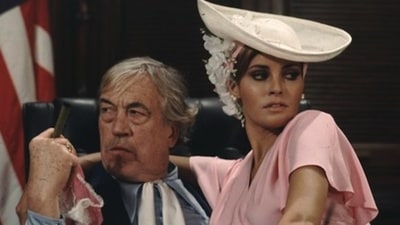
At the time of the film's release, Gore Vidal called the film version of his novel the second worst film he'd ever seen. Vidal has disowned the film calling it "an awful joke"
Film historian Leonard Maltin gave the film a BOMB (his lowest possible score). In his movie guide he states the film "tastelessly exploits many old Hollywood favorites through film clips." He also calls the film "as bad as any movie ever made."
Less Than Zero (1987)

Bret Easton Ellis hated the film initially but his view of it later softened. He insists that the film bears no resemblance to his novel and felt that it was miscast with the exceptions of Downey and Spader.
A Farewell to Arms (1932)

When the film version of A Farewell to Arms came out, Ernest Hemingway hated this film. They turned his novel and put too much emphasis on the romance angle. When Hemingway said that "He obviously did not know Hollywood well at all." If he did just knowing Frank Borzage directed this film should have told him something. The one thing that Hemingway did like was the casting of Gary Cooper as the hero Fredric Henry. He and Cooper became fast friends right up to when they both died in 1961.

Robert Crumb said in an interview that he felt that the film was "really a reflection of Ralph Bakshi's confusion, you know. There's something real repressed about it. In a way, it's more twisted than my stuff. It's really twisted in some kind of weird, unfunny way. I didn't like that sex attitude in it very much. It's like real repressed horniness; he's kind of letting it out compulsively." Crumb also took issue with the film's condemnation of the radical left, denouncing Fritz's dialogue in the final sequences of the film, which includes a quote from The Beatles song "The End", as "red-neck and fascistic" and stating that "They put words into his mouth that I never would have had him say. Crumb filed suit to have his name removed from the film's credits
Das Boot (1981)

Even though overwhelmed by the literally perfect technological accuracy of the film's set-design and port construction buildings, novelist Lothar-Günther Buchheim expressed great disappointment with Petersen's adaptation in a film review published in 1981, especially with Petersen's aesthetic vision for the film and the way the plot and the effects are, according to him, overdone and clichéd by the adaptation. He also criticised the hysterical over-acting of the cast, which he called highly unrealistic, while acknowledging the cast's acting talent in general. Buchheim also criticized depictions of the crew's loud behaviour during patrols as unrealistic and celebrations after achieving a torpedo hit or surviving a bombing as unprofessional.
Uttering concerns about the end result, Buchheim felt that unlike his clearly anti-war novel the adaptation was "another re-glorification and re-mystification" of the German World War II U-boat war, German heroism and nationalism. He called the film a cross between a "cheap, shallow American action flick" and a "contemporary German propaganda newsreel from World War II"
Added to
9 votes
History, Literature and Cinema
(10 lists)list by SFG¿mystic
Published 12 years, 10 months ago  1 comment
1 comment
 1 comment
1 commentPeople who voted for this also voted for
Greatest Unscripted Scenes
When IMDb and Rotten Tomatoes disagree
Too Young For Heart Attacks: Don't show your kids
Fictional Places Actually Existed
Geometry & Stanley Kubrick:A One Point Perspective
Scum of the Earth: The Most Hated People Ever
Directors: Movies they refused or didn't get.
Film Stills That Make You Go "HOLY SHIT"
Famous People vs. the Actors Who Played Them
Celebrities Who Are Banned From Foreign Countries
Top 20 Drinking Games: The Movie Edition
What the fuck is that??? (Updated)
Film Posters That Make You Go 'HOLY SHIT!'
Worst Christmas Movies In History
Typical Movie Arguments That Irk Me...
Most Extreme Movie Performances
Cut! Movie Scenes Too Hot for Screens
Movies That Predicted The Future
Tim Burton Lists
Favorite Film Stills
Scary
Queens of Disguise (Women with many faces)
 Login
Login
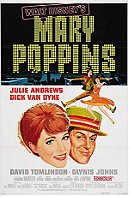
 2671
2671
 7.3
7.3
 7.8
7.8

